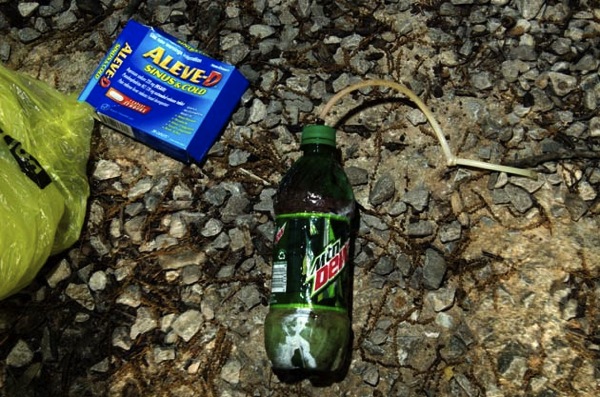
In Mother Jones, Jonah Engle investigates the business of “shake and bake” methamphetamine labs and how legal drug manufacturers fighting to keep Sudafed, Claritin-D, and other medications containing pseudoephedrine available over the counter, or at least “behind the counter” without a prescription, unintentionally help illegal drug manufacturers stay in business. From Mother Jones:
If anyone wondered what would happen if heroin or cocaine addicts suddenly discovered how to make their own supply with a handful of cheap ingredients readily available over the counter, methamphetamine’s recent history provides an answer. Since 2007, the number of clandestine meth sites discovered by police has increased 63 percent nationwide. In Kentucky, the number of labs has more than tripled. The Bluegrass State regularly joins its neighbors Missouri, Tennessee, and Indiana as the top four states for annual meth lab discoveries.
As law enforcement agencies scramble to clean up and dispose of toxic labs, prosecute cooks, and find foster homes for their children, they are waging two battles: one against destitute, strung-out addicts, the other against some of the world’s wealthiest and most politically connected drug manufacturers. In the past several years, lawmakers in 25 states have sought to make pseudoephedrine—the one irreplaceable ingredient in a shake-and-bake lab—a prescription drug. In all but two—Oregon and Mississippi—they have failed as the industry, which sells an estimated $605 million worth of pseudoephedrine-based drugs a year, has deployed all-star lobbying teams and campaign-trail tactics such as robocalls and advertising blitzes.
“Merchants of Meth: How Big Pharma Keeps the Cooks in Business”
(Photo by Stacy Kranitz. See her photo essay: “Chasing Meth in Laurel County, Kentucky“)